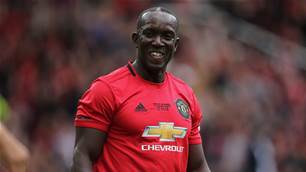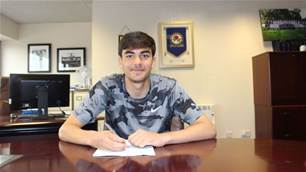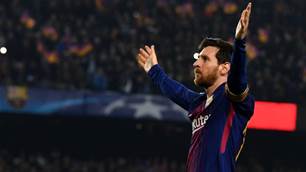BARCELONA'S title represents more than just a victory over their hated rivals Real Madrid.
It is a victory for those who believe football clubs should build from the grassroots up, rather than just spending huge amounts of cash in a bid to buy success immediately.
Madrid watched on last season as Barcelona swept to Primera Division, Champions League and Copa del Rey glory, and decided drastic action was required.
Florentino Perez, the architect of the original Galactico policy, marked his return to the club by launching a fresh splurge into the transfer market as more than a quarter of a billion euros were spent in just a few short weeks.
Cristiano Ronaldo, Kaka, Karim Benzema, and Xavi Alonso were just some of the names who arrived as Madrid twice broke the world record for a transfer fee in the space of two weeks in one of the most dramatic summers at any club in the history of the game.
But there was never a great sense that Madrid were building a team, so much as trying to placate their fans with big-name signings. True, there were defenders amongst the newcomers, but Raul Albiol and Alvaro Arbeloa are not at the same level as the forwards brought in.
Barcelona did not stand still either - making the widely criticised move of swapping Samuel Eto'o for Zlatan Ibrahimovic, while also swooping for defender Dmytro Chigrynskiy.
But in contrast to events at the Bernabeu, it was a quiet summer as Barca were content to nurture the rising talents of Pedro and Sergi Busquets, homegrown talents following in the footsteps of Lionel Messi, Xavi and Carles Puyol.
Madrid believed their radically overhauled squad would be more than capable of catching Barca in the league, as well as launching an assault on the Champions League as they prepared to host the final on May 22.
But in both cases they have come up short.
To be fair the league could have gone either way but Barca just edged it by three points.
Their Champions League campaign was even more disappointing as they exited at the last-16 stage to Lyon.
So what went wrong?
In truth, not much. As disappointing as they were in the Champions League, it is hard to argue with a league campaign in which they have collected 96 points.
True, there were problems. Kaka suffered an injury-plagued campaign and admitted he had not found his best form, while Benzema flopped with only nine goals in 31 games, playing second fiddle to Gonzalo Higuain - a man Madrid tried to sell only to rely on his 29 goals.
The problem is, Barca were simply better.
But Pep Guardiola had huge advantages over Manuel Pellegrini.
For all the talent at Pellegrini's disposal, he was being asked to mould a team overnight, where much of the Barca squad has been playing together for years.
It is easy to spot the difference between the telepathic understanding which connects Xavi with Messi, and the blatant reluctance to pass to one another that separates Ronaldo from Higuain.
Madrid acted with far too much haste in the summer. While they were spared the mistake of selling Higuain, how they must wish they had kept Arjen Robben, a man who will be playing in the Champions League final for Bayern Munich to cap a season in which he has scored 24 goals in 34 games.
He will have an added incentive to lift the trophy at his old home.
Standing in Robben's way will be an Inter side coached by Jose Mourinho, a man many believe may as well stick around in Madrid after the final as he is heavily linked with the Real job for next season.
Whether the 'special one' can have any more success shaping a team remains to be seen, but Madrid have already been linked with another summer splurge, and that will only leave them with more catching up to do as Barcelona march on.
Related Articles

A-League All Stars want Red Devils legend Yorke for Barcelona battle

Aussie former Barcelona starlet signs for Championship club













